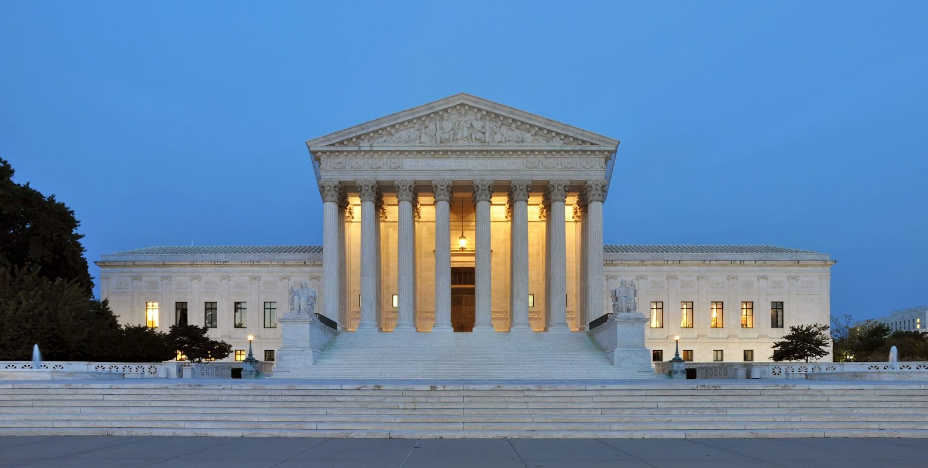The Wisconsin Supreme Court election earlier this year illustrated the political nature of the fight for Supreme Court seats. With millions of dollars pouring into the race from various political groups, the race was the most expensive state court race in history. It illustrated that voters and interest groups view the control of courts as a means to political results.
Read MoreOften times, the American people are told that only incremental, slow change can be achieved. They are told that moderate politicians have ostensibly the same goal, to help, but are just more realistic than "radicals" like Bernie Sanders. Despite consistent polling to the contrary, politicians aligned with corporations have claimed that they stand with the people in opposition to a stronger social safety net. These are lies. Through corporate induced, profit motivated obstructionism, supposedly "moderate" politicians blocked popular initiatives while those who advocated the bill shied away from confrontation to the detriment of their cause.
Read MoreIn constitutional questions regarding police encounters, the Supreme Court often defers these decisions to Congress. In doing so, the rights of citizens to seek justice for the wrongful behavior of law enforcement officers are left in the hands of hyperpolarized politicians who fail to hold police accountable, leaving the rights of citizens in legal limbo.
Read MoreWhen partisan divides appear stronger and more rancorous than ever, many Americans have been left without hope for the political future. Yet, in the midst of these tensions, there have been notable instances of bipartisan efforts across levels of government.
Read MoreThe process of student tracking, despite seeming practical, has had many unhindered consequences on student education, particularly with the education of minority students. At first glance, this system makes perfect sense by having students placed into classes seemingly catered to their experience and abilities, but studies on the effects of tracking suggest it may be perpetuating systemic racial and socioeconomic inequality.
Read MoreThe first amendment clearly states that the federal government shall not interfere with US citizens’ religious freedom. But does this mean that religion and politics are completely separated in the United States today?
Read MoreOver recent decades, Congress has progressively grown less effective, forcing the Supreme Court to address these issues in ways that are inconsistent with public opinion. Recent controversial decisions have led to questions regarding the legitimacy of the Supreme Court and the need for judicial reforms.
Read MoreGrades, as a tool for measurement and for learning, are a fundamental part of American education but its negative effects often go ignored. As studied by psychology, grades are immense obstacles to curiosity and the long-term learning of students.
Read MoreEver since Ketanji Brown Jackson was nominated by President Joe Biden and recently confirmed by the Senate to be the next member of the Supreme Court, discourse continues to rage over whether she is qualified for the position. Are critics of Jackson right in their doubts, or are they mistaken?
Read MoreThe Indian Child Welfare Act prevents Native children from being removed from Native communities. Some want to see it overturned, but doing so could lead to genoicide.
Read MoreWhen it comes to political polarization, are differences between American political parties’ personalities the cure or the disease?
Read MoreWhy a third party won’t fix America’s political system and what will
Read MoreAs the partisan divide deepens with the country, the current format for the presidential debates has become increasingly obsolete. It’s time the format changed to benefit and engage with the voters.
Read MoreIn the age of online influencers, online personalities are gaining more and more control over our political process. Extremists are taking advantage of a broken system to promote their dangerous ideas— and they’re using the search algorithm to do it.
Read MoreWith this announcement, the Trump administration weaponizes American history in an exclusionary and nationalistic way. Reacting to historic protests, “patriotic education” is a move to erase the story and legacy of oppression in the United States.
Read MoreThe politicization of the Supreme Court is bad for the rule of law. Packing the Court would only politicize it more. Democrats should only resort to court-packing as a last resort (not solely because they come into power).
Read MoreDespite his appeal to moderates and centrists, Biden’s career and policies suggest a more progressive agenda as President.
Read MoreWith the limitations imposed by social distancing, LGBTQ students face difficult decisions, stressful home situations, and need for resources.
Read MoreThere comes a time when silence is betrayal. In response to the murder of George Floyd, as well as the state-endorsed police violence that has occurred in the U.S. over the past several decades, we find it imperative to use our privilege as a publication at an institution like UVA to stand in solidarity with those who are protesting, as well as encourage our readers to support organizations that seek to rectify these injustices.
Read MoreIn the time of coronavirus, it’s no longer business as usual for higher education. Universal Credit/No Credit will help us cope with this disaster.
Read More



















